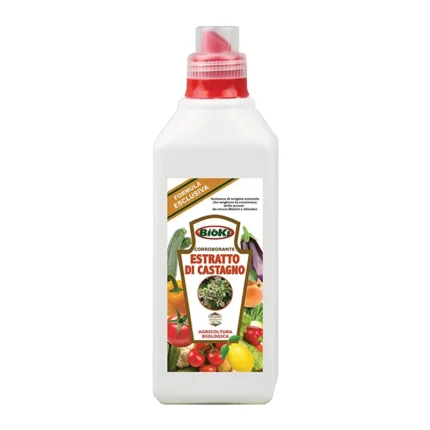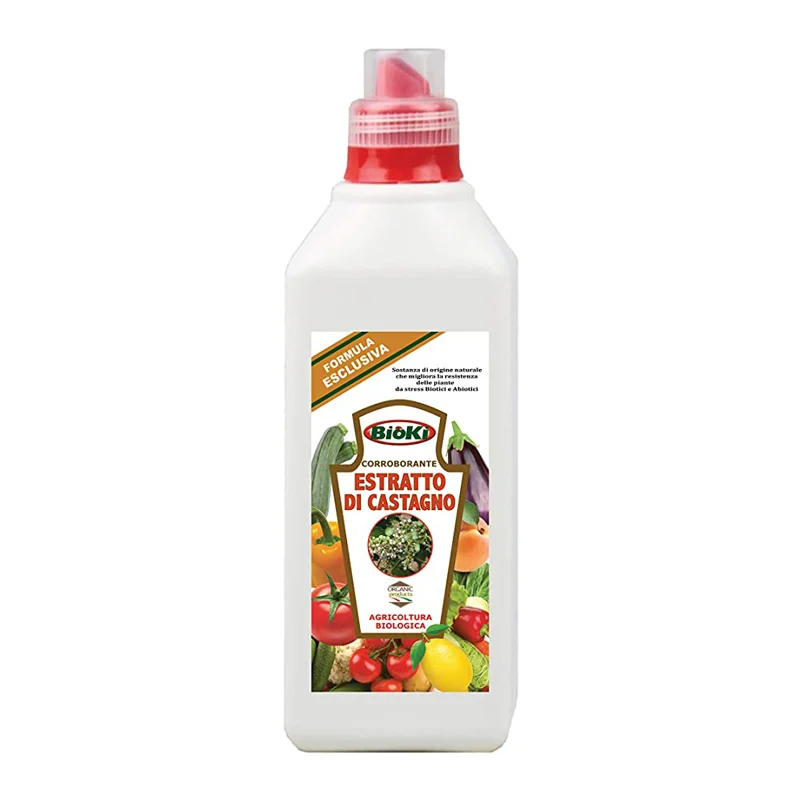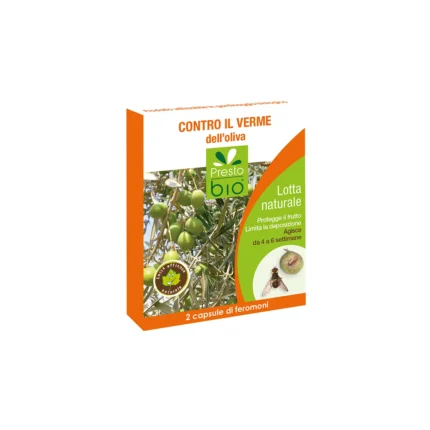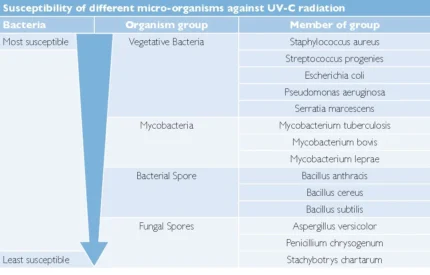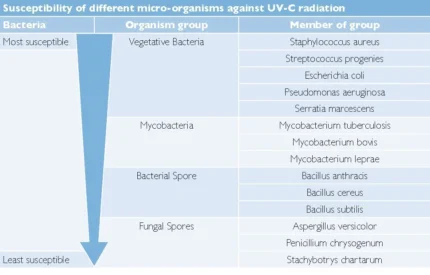BIOKI – INTEGRAL CHESTNUT EXTRACT | 100gr
Shipping
Shipping information
2-year warranty
2-year warranty on mechanical parts
Tannin-based whole chestnut extract, a product resulting from aqueous extraction of chestnut wood obtained exclusively by physical processes.
In plants, it acts as an efficient elicitor capable of stimulating defence reactions and activating the development of natural substances against biotic and abiotic stresses.
Plants thus grow normally even under environmental conditions favourable to the development of fungi and bacteria.
The product can be used in organic farming in accordance with EC Regulations 834/2007 and 889/2008.
Main effects chestnut extract
- Chestnut tannin forms a thin film on the vegetation that is very adhesive, nutritive, biodegradable, poorly permeable to oxygen that can reduce evapotranspiration during hot periods, reduces fruit splitting, promotes healing, improves resistance to fungal and bacterial attacks.
- The presence of polyphenols and organic acids makes it possible to improve soil structure, acidify soils with excessive pH and reduce damage due to excess salinity. The polyphenol component also stimulates the development of useful microflora (microbial antagonists) while limiting the proliferation of crop-damaging pathogens, helps limit the development and multiplication of phytophagous nematodes responsible for alterations to the plant root system thanks to its caustic action on juvenile forms and anti-feeding action on adult forms.
- The complexing properties of tannin extract also promote the growth of the root system and the assimilation of useful plant nutrients, especially in ‘tired’ soils subject to fumigation and short rotations.
- Chestnut tannin can be used on horticultural-floricultural crops under integrated and organic farming by means of fertigation, distributing the product constantly throughout the crop development cycle.
- At root level, chestnut tannin creates a particularly favourable environment for the normal growth and development of the plant root system (roots, tubers, taproots, etc.) even in the presence of soil pests or other adverse biotic and abiotic factors. It improves soil vitality and, thanks to its acidic pH, creates an inhospitable environment for nematodes.
Dosage and method of use
Chestnut tannin can be used on all fruit, vegetable, flower and industrial crops, by foliar spraying and fertigation at every stage of development in the open field and in greenhouses.
Protective treatments: 250-350g/hl, adding 600g of cliptolinolite zeolite to the intervention, treating the plant well without dripping.
Protective treatments against fungal diseases: 300 g/hl, intervening every 8-10 days
For complete crop protection, it is advisable to repeat the treatment 3-4 times during the growing cycle every 15-20 days with copious amounts of water.
In this way, near the root system of the plants, the concentration of the product is kept constant and the development of fungi and the damaging action of nematodes is avoided. It is used at a dose of 1-3 kg/1000 sqm (equal to 10/30 kg/ha) every 8-10 days.
| Weight | 0,15 kg |
|---|---|
| Brand |
ANTIKA OFFICINA BOTANICA |

